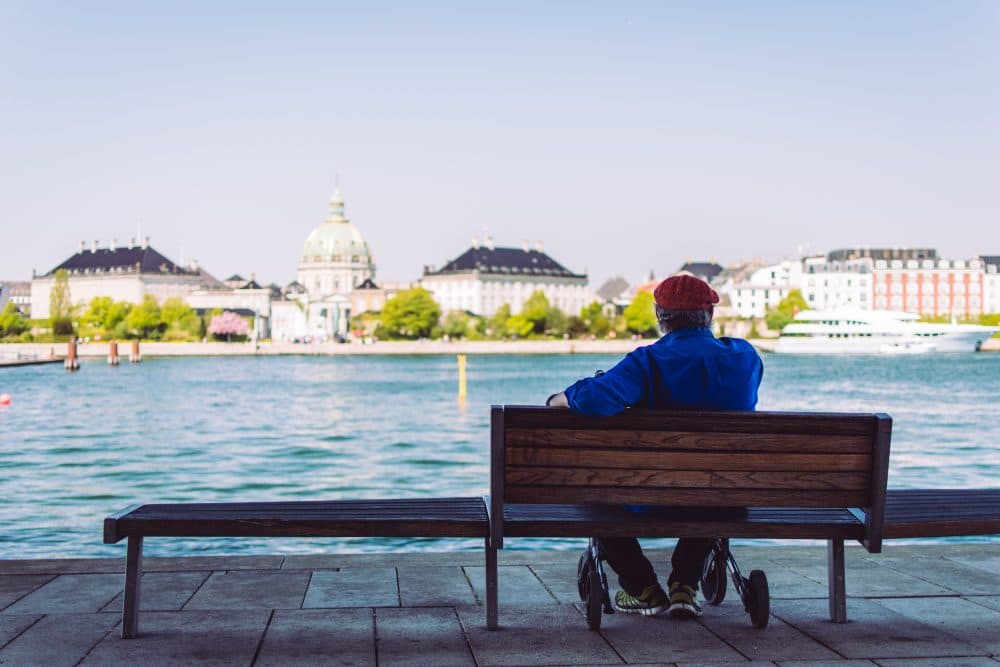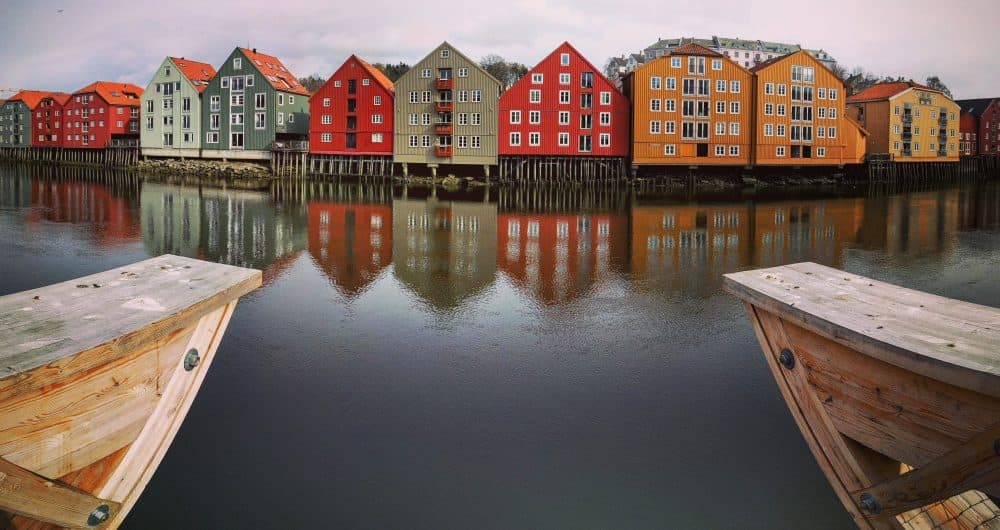Advertisement
Commentary
Americans Are Unhappier Than Europeans And Living Here Costs More. Why Stay?

Spring belongs to the young. They graduate. They marry. They launch their lives. My son and his Italian fiancee, who met in college, are planning their wedding, which raises the question: Where will they live? Right now, he works in Boston; she works in London and is looking at graduate schools in her hometown of Milan.
To explore their options, my son and his future wife first considered their life goals. They want to attend graduate school; have rewarding careers; enjoy a happy family life; have good, affordable health care; and probably a child — in either North America or Europe.
So, when the U.N.’s "Happiness Report" came out in March, ranking the happiness of populations around the world, we paid close attention. Apparently, happiness thrives in Nordic countries and some Western European countries, and in Canada, New Zealand and Australia. The U.S. ranks 18th in these global quality-of-life ratings, having slipped a few places lately — apparently because we've pared down the socio-economic supports that helped other nations win the happiness jackpot. Also, inequality in the U.S., already high, has continued to rise.

Watching my son and his fiancee consider how they might reach their goals in some of the world’s happiest nations, it’s hard not to conclude that we’re missing something here in the U.S.
For example, my son would like to apply eventually to an American grad school, like the one where his father and I met 34 years ago. Three years of tuition for a master’s degree would total nearly $150,000 — roughly the down payment on a home. If he attends a similar program in the U.K., as the spouse of a European resident, his degree might cost as little as $15,000, allowing him and his wife to have both an education and a home. In the last decade, nine of his neighbors or friends have chosen Canadian or European colleges or graduate schools mainly for this reason.
After school, young people like my son and his future wife face the long years of career-building. Of course, they’ll need jobs. Score one for the U.S., right? Not exactly. While U.S. unemployment is currently low at 3.9 percent, a number of “happier” nations have the same or slightly lower rates: Norway, the Netherlands, Germany and Switzerland. Denmark's is slightly higher and Canada and Luxembourg both have unemployment rates below 6 percent.
What are these jobs like? Some wages are higher in the U.S., but so is the cost of living. We have more expensive health care and education, and less public transit. Our jobs pay more in stress, too. Nordic and European nations give workers comparatively luxurious amounts of vacation that contribute to their populations’ enviable happiness- — around four weeks annual leave plus holidays. That becomes even more important if a couple has children.
And what about parental leave? Compared to the 12 weeks offered new mothers in the U.S. — requiring them afterward to leave either their helpless infants or their jobs — most European countries offer leave to both parents with varying degrees of generosity. Germany offers 14 months of leave at 65 percent of previously earned wages. Sweden and Denmark follow with roughly comparable packages. Norway and Finland offer a little less.

Finally, but critically, my son and his future wife, like all of us, want to live long, happy lives. Let’s look at lifespans, which reflect both the quality of a nation’s health care and the happiness of a population — or, conversely, the level of stress gnawing at that population. For all our wealth, the U.S. longevity ranks an appalling number 50 in the world, according to the World Health Organization. Not only that, but our lifespan, after climbing for decades, is now shrinking, gradually but ominously.
By no coincidence, nations whose citizens live longer enjoy universal health care — mostly single-payer, publicly subsidized health care systems. Not surprisingly, some of the countries with the longest lifespans — Canada, Belgium, France, Germany, Netherlands, Norway, Sweden, and Switzerland — have health care that ranks very high in yet another study, one by the Legatum Institute of London that ranked U.S. health care 30th in the world.
Of course, the populations of those just-mentioned countries with long-lived populations also enjoy the comfort of generous government support at their most vulnerable times — when they retire or lose a job; when they have children; when they are sick or injured.
In the U.S., where we consider our gross domestic product the most important indicator of success, the benefits of our high productivity do not reach most Americans, including those whose labor supports our high productivity. As our national wealth goes into fewer hands, perceptions of corruption have also increased, a perception that can weigh heavily on the national mood, according to the U.N. report.
The last few decades have weakened our socio-economic supports such as unemployment benefits, Medicaid and welfare. Even as Social Security survives current attacks, it doesn’t keep up with the rising cost of living. Medicare, like Social Security, is perennially endangered under recent Republican majorities.
Why, with so much wealth, are Americans asked to sacrifice their happiness — their gains in lifespan, their cost-of-living increases in Social Security, and other social goods? Why are economic and military strength the only measures of our success? Will some of our children join the growing brain drain to happier places? What kind of life would you like your children to have?
